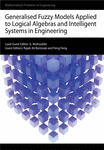Journal list menu
Export Citations
Download PDFs
Research Article
Open Access
oa
Multiple Attribute Decision-Making Problem Using Picture Fuzzy Graph
- First Published: 21 October 2021
Research Article
Open Access
oa
Correlation Measures for Cubic m-Polar Fuzzy Sets with Applications
- First Published: 28 September 2021
Research Article
Open Access
oa
A New Numerical Technique for Solving Volterra Integral Equations Using Chebyshev Spectral Method
- First Published: 03 September 2021
Research Article
Open Access
oa
Fuzzy Least Squares Approximation Using Fuzzy Polynomial
- First Published: 02 September 2021
Research Article
Open Access
oa
Characterizing Inequalities for Biwarped Product Submanifolds of Sasakian Space Forms
- First Published: 20 August 2021
Research Article
Open Access
oa
Connectivity Indices of Intuitionistic Fuzzy Graphs and Their Applications in Internet Routing and Transport Network Flow
- First Published: 14 August 2021
Research Article
Open Access
oa
PWM-VSI Diagnostic and Reconfiguration Method Based on Fuzzy Logic Approach for SSTPI-Fed IM Drives under IGBT OCFs
- First Published: 31 July 2021
Research Article
Open Access
oa
Development of a Didactic Educational Tool for Learning Fuzzy Control Systems
- First Published: 31 July 2021
Research Article
Open Access
oa
Methods for Solving LR-Type Pythagorean Fuzzy Linear Programming Problems with Mixed Constraints
- First Published: 31 July 2021
Research Article
Open Access
oa
Ranking Effectiveness of COVID-19 Tests Using Fuzzy Bipolar Soft Expert Sets
- First Published: 31 July 2021
Research Article
Open Access
oa
Novel Dombi Aggregation Operators in Spherical Cubic Fuzzy Information with Applications in Multiple Attribute Decision-Making
- First Published: 10 July 2021
Research Article
Open Access
oa
Some New Coupled Fixed-Point Findings Depending on Another Function in Fuzzy Cone Metric Spaces with Application
- First Published: 08 July 2021
Review Article
Open Access
oa
Intelligent Computer-Aided Prostate Cancer Diagnosis Systems: State-of-the-Art and Future Directions
- First Published: 07 July 2021
Research Article
Open Access
oa
Characterization of Skew CR-Warped Product Submanifolds in Complex Space Forms via Differential Equations
- First Published: 06 July 2021
Research Article
Open Access
oa
Analysis of Obata’s Differential Equations on Pointwise Semislant Warped Product Submanifolds of Complex Space Forms via Ricci Curvature
- First Published: 27 June 2021
Research Article
Open Access
oa
Numerical Approximation of One- and Two-Dimensional Coupled Nonlinear Schrödinger Equation by Implementing Barycentric Lagrange Interpolation Polynomial DQM
- First Published: 25 June 2021
Research Article
Open Access
oa
Novel Concepts of Domination in Vague Graphs with Application in Medicine
- First Published: 25 June 2021
Research Article
Open Access
oa
Multiple-Attribute Decision-Making Using Fermatean Fuzzy Hamacher Interactive Geometric Operators
- First Published: 25 June 2021
Research Article
Open Access
oa
A Hybrid Method for Complex Pythagorean Fuzzy Decision Making
- First Published: 21 May 2021
Research Article
Open Access
oa
Evaluation of Sentiment Analysis via Word Embedding and RNN Variants for Amazon Online Reviews
- First Published: 08 May 2021




